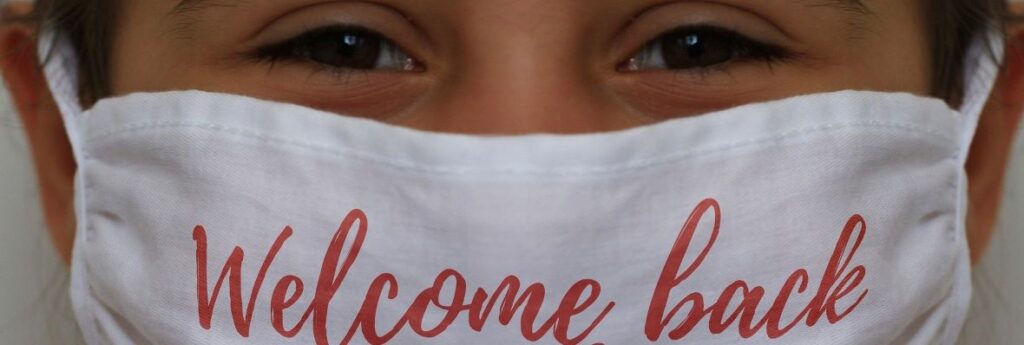It’s official – starting next month Canada will allow non-Canadian, non-essential travellers to return to this country for the first time since the pandemic began. The phased-in plan to lower border barriers erected to limit the spread of COVID-19 will enable US citizens and permanent residents to arrive as of Aug.9 and international travellers on Sept. 7. Only those who are fully vaccinated will be welcome.
At the same time, the government cautions that its intentions are “provided that the domestic epidemiologic situation remains favourable.”
Notice was delivered yesterday afternoon (July 19) following hints from federal officials including Prime Minister Justin Trudeau last week that the move was imminent thanks to rising vaccination rates and declining cases in this country, with the former expected to soon reach the conditional 75% threshold for fully vaccinated Canadians that the government previously cited. Currently just over half of Canadians (over age 12) have been doubled-dosed.
The government’s announcement includes some important fine print, and altered protocols for all travellers, which, in some cases, will equally benefit Canadians returning to the country. They include:
• Vaccinations must take place at least 14 days in advance of arrival in Canada using COVID-19 vaccines approved in this country.
• Travellers will still be required to submit a negative COVID-19 molecular test result and proof of vaccination prior to arrival by way of the ArriveCAN smartphone app or web portal.
• Travellers must also have a paper or digital copy of their vaccination documentation in English or French (or certified translation) ready to show a government official on request as evidence.
• Effective the second week of August, post-travel test results will no longer be necessary upon arrival in Canada and the 14-day quarantine requirement will also be waived. However, all travellers must still provide a quarantine plan and be prepared to quarantine in case it is determined at the border that they do not meet the necessary requirements.
• Air travellers will no longer be required to spend the first three nights of their quarantine at a government-approved hotel.
• Children under 12 who are accompanied by fully vaccinated and eligible family members will also be exempt from quarantine, provided they wear a mask in public places and avoid indoor group settings.
• Canada Border Services Agency officials will also be subjecting random travellers to a mandatory molecular test upon arrival.
• All direct commercial and private passenger flights to Canada from India remain restricted until Aug. 21, 2021, at 23:59 EDT.
• A person who submits false information on vaccination status could be liable to a fine of up to $750,000, six months imprisonment, or both, under the Quarantine Act, or prosecution under the Criminal Code for forgery. Those violating required quarantine face fines of up to $5,000 per day.
“This strategy allows the government of Canada to continue monitoring variants of concern in Canada and vaccine effectiveness,” the government said in a news release, adding, “Using these layers of protection, the government… can monitor the COVID-19 situation in Canada, respond quickly to threats and guide decisions on restricting international travel.”
The move comes two weeks after the Canada Border Services Agency began waiving quarantine rules for fully vaccinated Canadian citizens and permanent residents.
Opening the border first to Americans will allow Canada to “fully operationalize” the new border measures before full implementation in September, while also recognizing “the many close ties between Canadians and Americans,” the government said.
Meanwhile, as of Aug. 9, airports in Halifax, Quebec City, Ottawa, Winnipeg, and Edmonton will also be added to the list of Canadian cities (currently Toronto, Montreal, Calgary and Vancouver) where international flights are permitted to land.
“The easing of Canada’s border measures is welcome news for tourism businesses across the country, the thousands of Canadians employed by the sector and the communities who rely on it,” noted Minister of Economic Development Melanie Joly. “It has been a challenging year as we balance the need to protect both the health of Canadians and our economy, but tourism businesses have demonstrated incredible resilience…”
Canada’s airlines were quick to welcome the news.
“As an industry, we have been calling on the government for months to provide a clear restart plan utilizing science-based measures,” said Mike McNaney, President and CEO of the National Airlines Council of Canada, which represents Canada’s largest carriers (Air Canada, Air Transat, Jazz Aviation LP and WestJet). “Though we have almost lost the summer travel season, today’s announcement provides clarity and timeframes that will allow consumers to plan, and the travel and tourism sector to begin welcoming fully vaccinated foreign travellers once again.”
Despite the move, the United States has shown no signs that it is planning to reciprocate Canada’s move by easing travel restrictions on would-be Canadian visitors hoping to go south of the border.
Public Safety Minister Bill Blair said he briefed US Homeland Security Sec. Alejandro Mayorkas about the steps Canada intended to take but got no indication that the US would be following suit before the existing restrictions are set for renewal on Wednesday.

